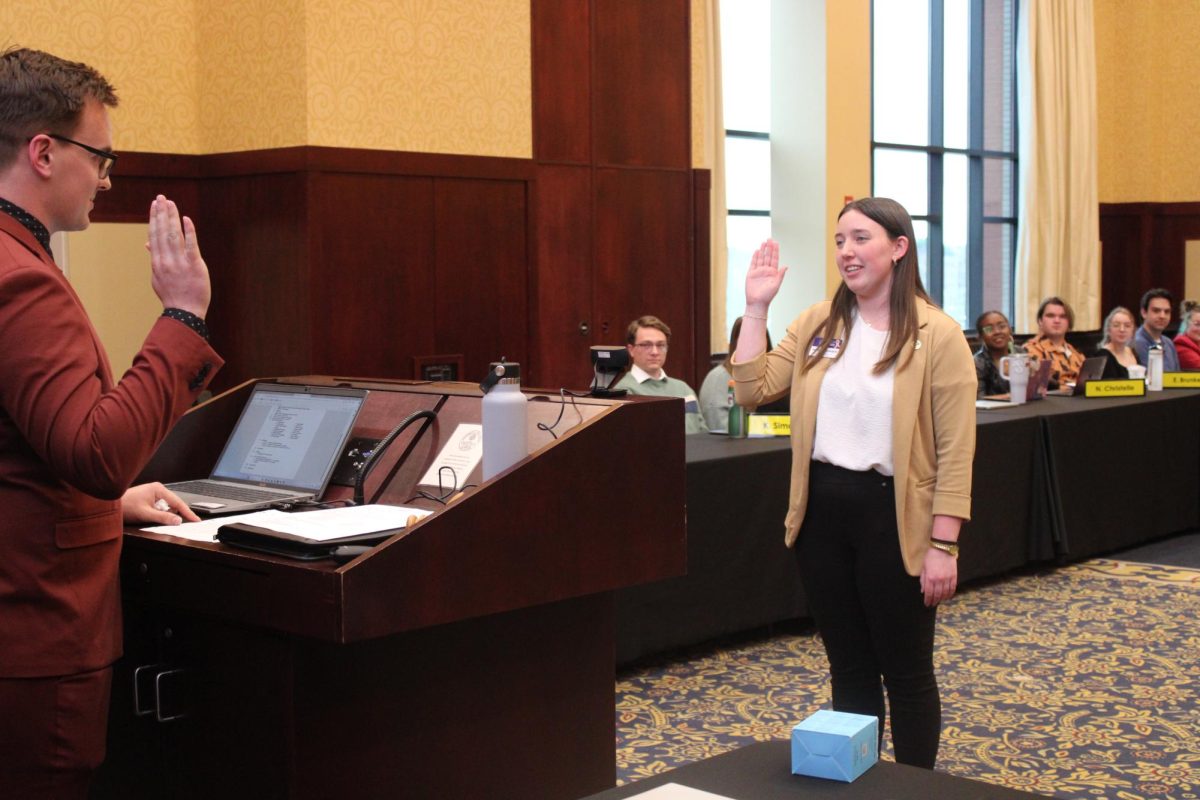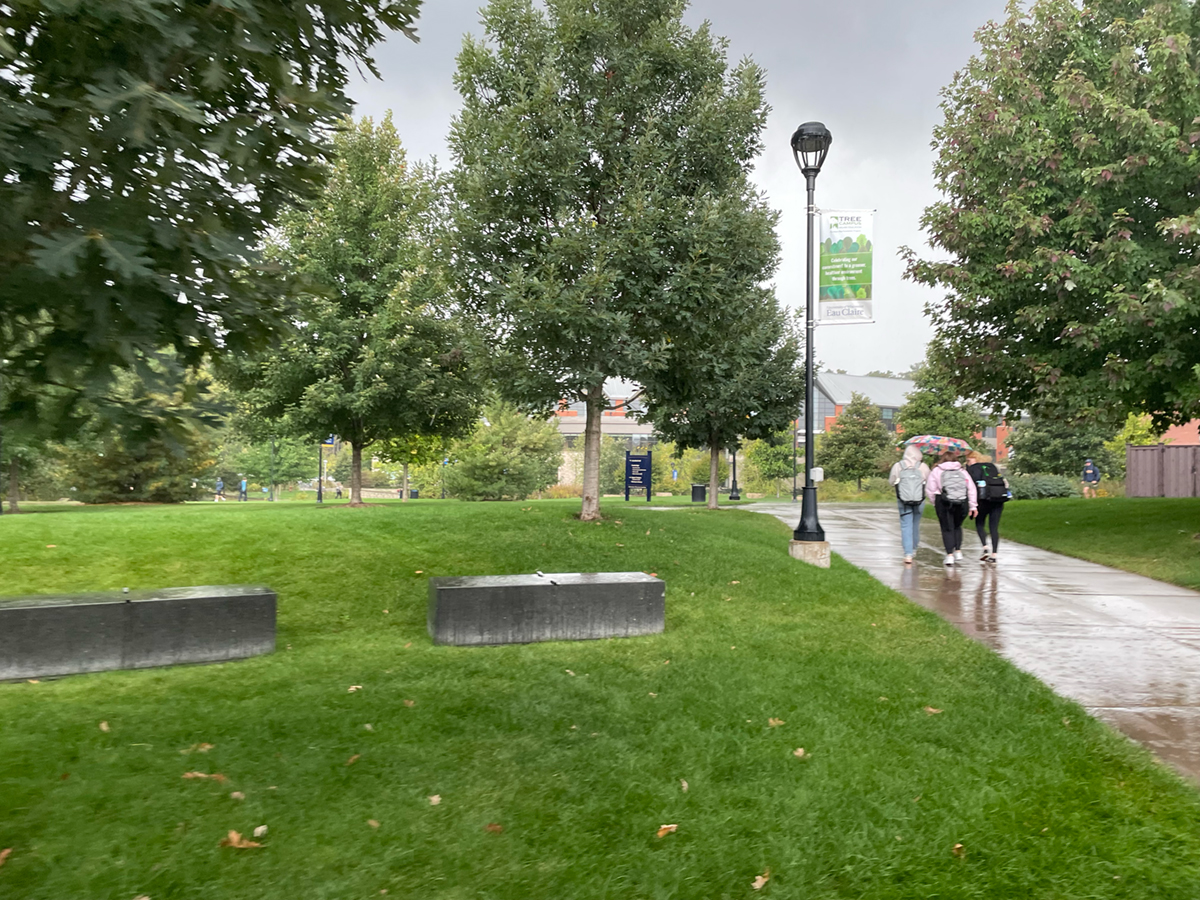Sophomore Amy Bonlender has always considered herself a bad notetaker. In her first three semesters at UW-Eau Claire, she had problems taking notes that were legible or memorable.
Bonlender tried several methods to try to improve her notetaking, but never found one that worked for her.
| “My class is based more on discussion, rather than regurgitation.” –Heath Dingwell Associate professor Criminal justice |
This semester, Bonlender has found a system that works for her, something called “mind-mapping.” It involves mapping out ideas from the lecture rather than trying to write down verbatim what is presented in class.
Bonlender learned about the mind-mapping technique in her Introduction to Criminal Justice class, taught by Heath Dingwell, assistant professor of criminal justice in political science.
In some of his classes this semester, Dingwell has introduced different methods of teaching than those normally found in college classrooms. Among the differences, he is teaching new methods of note taking, including the mind-mapping method.
Dingwell also doesn’t give grades or tests.
“I focus more on the process of learning rather than on the outcome,” Dingwell said. “Students traditionally focus on a grade, thinking about what they have to do to get that grade.
“My class is based more on discussion, rather than regurgitation.”
Junior Lindsay Carlson said that her Criminology class really didn’t know what to expect when it found out that the evaluation was based on ideas and output rather than memorizing a textbook.
“Class interaction has gone up as well as the positivity of the atmosphere,” Carlson said in an e-mail. “I have noticed that I retain the information learned in class better with this theory.”
Dingwell said he discovered new teaching styles last fall.
While looking into speed-reading for his own use, he discovered other different teaching approaches and decided to incorporate them into some of his classes this semester.
Among the things he has introduced is mind-mapping.
This process is a new approach to notetaking where students draw a map of ideas brought up in class, then find their own ways of connecting the ideas.
Another classroom technique he has incorporated is assigning journal entries for his students. Dingwell will give students a question, then have them write on that question for five minutes.
Dingwell encourages “stream of consciousness” writing where students write whatever comes to their mind, no matter how absurd it may seem.
“I want them to remove the conscious barriers,” Dingwell said. “There will be some things in the writing that are very beneficial.”
Bonlender said in an e-mail that she has benefited from the methods Dingwell has introduced. She said she has used the mind-mapping notetaking technique with success in other classes. She also bought a book about speed-reading that Dingwell recommended.
“I am nowhere near the ‘speed-reading’ ability,” she said, “but I still have found that it takes me less time to understand the readings for my classes.”
Junior Sara Opsteen is in Dingwell’s Criminology class now, and was in his Introduction to Criminal Justice class last semester. She said she enjoys the method he is using this semester more than the traditional style of teaching.
“I feel that I am able to explore topics and my own personal opinions more in-depth (with) the journals we have to write,” she said in an e-mail.
There is more class discussion and student involvement with Dingwell’s current style of teaching, Opsteen said. It poses a problem, though, for students who aren’t outspoken, she said. They seem to be “left out in the cold” if they don’t respond or aren’t called upon, she said.
“It does seem, however, that people are willing to express their ideas on different ideas,” she said. “I never participated in class last semester, but now it is a lot easier.”
Dingwell currently uses some parts of his alternative teaching style in all of his classes, but he uses all of the components exclusively in his Criminology class. Next semester he plans to use all of his alternative teaching concepts in all of his classes.
“I don’t use one single learning approach,” he said. “I’m constantly finding different techniques that I want to try out.”
These various methods involve learning things in a different way, Carlson said.
“The things we learn, I already know,” she said. “Now I have many different views on them and can connect them with other ideas in ways I hadn’t realized were out there.”






